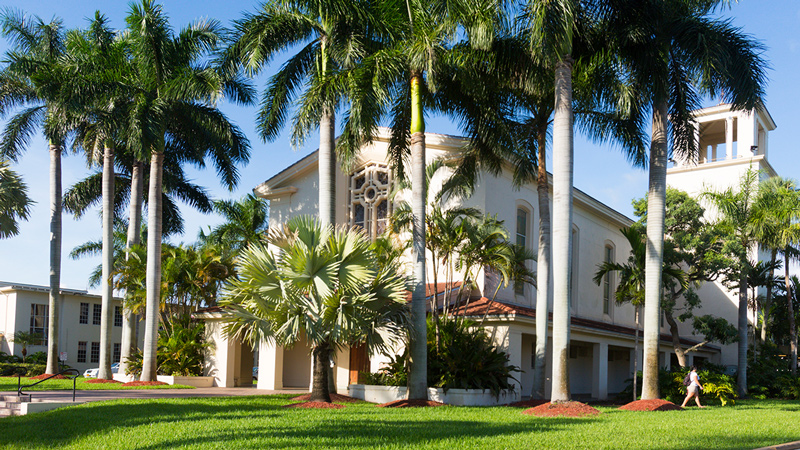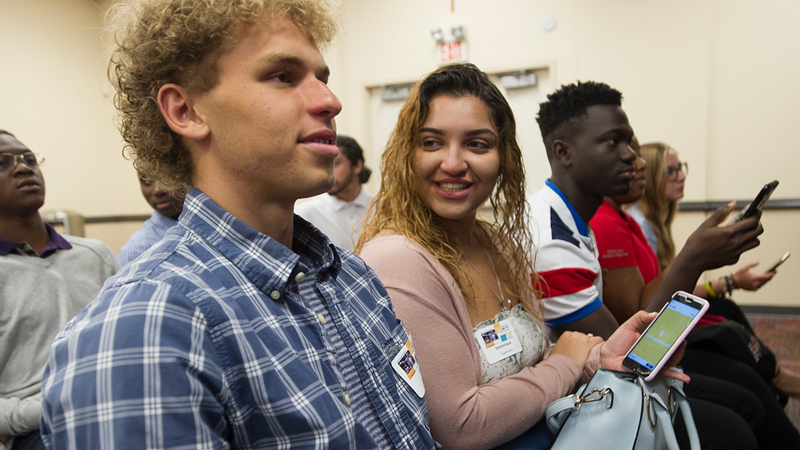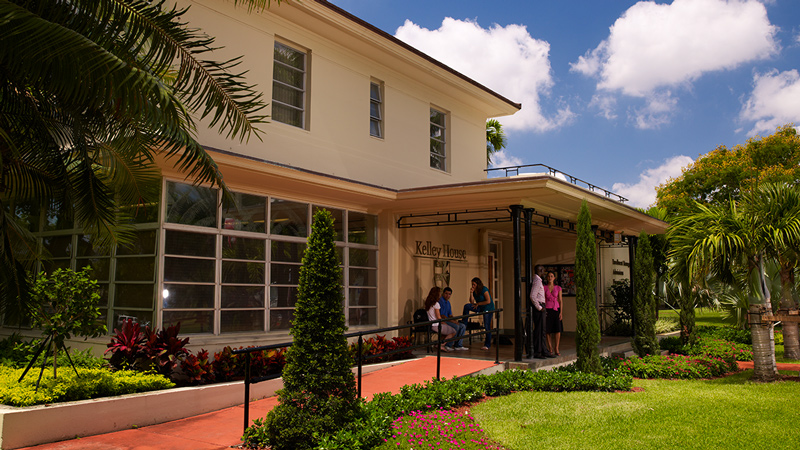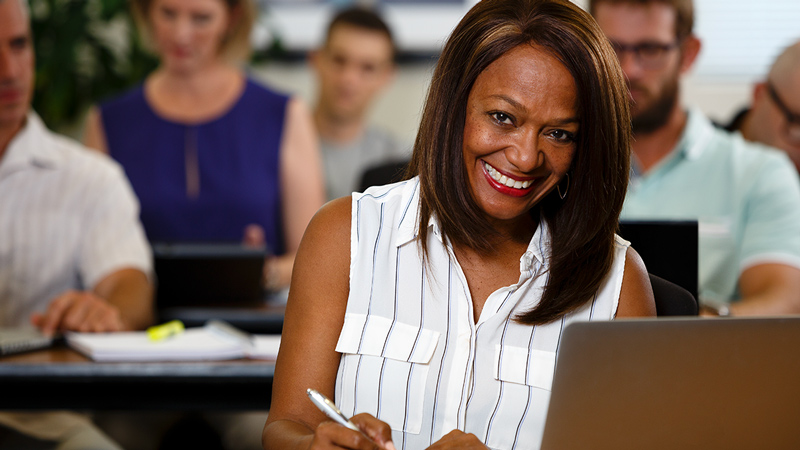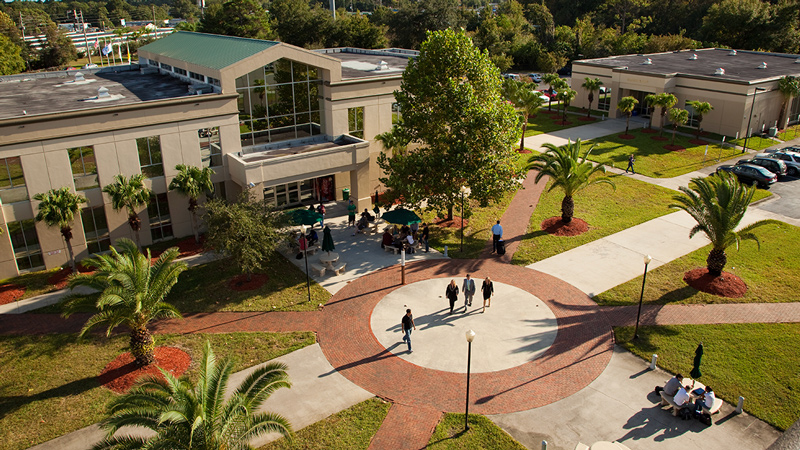Barry University School of Law Presents: Just Energy and Place Workshop
On Friday, October 3, 2025, Barry University School of Law will host the Just Energy and Place Workshop at Orlando City Hall, bringing together a unique group of voices: community advocates, policymakers, professors, students, and legal professionals. From 9 a.m. to 4 p.m., participants will gather not for a lecture or panel series, but for a collaborative workshop aimed at reimagining what a just energy transition could look like in Central Florida and beyond.
Communities across the country are grappling with the realities of climate change and energy transitions, but the burdens have not been evenly distributed. According to the United States Environmental Protection Agency, low-income neighborhoods and communities of color often experience the harshest impacts of energy system failures, pollution, and rising costs, while too often being left out of the conversations shaping solutions.
Professor Nadia Ahmad, an Associate Professor at Barry Law and principal investigator on the Florida team for this national research study, underscored that the urgency of this work lies in centering equity and justice.
“For energy transitions, a lot of time the policy just focuses on the economics,” said Ahmad. “We want to make sure it’s also framed around issues of lived experiences and community empowerment to ensure that front line communities are really able to shape the narrative and have a seat at the table.”
By creating space for both policymakers and the people directly affected, the workshop embodies a growing recognition: true progress on environmental and energy issues must start with those most impacted. Unlike a traditional conference, the day will be structured as an interactive, hands-on dialogue. Participants will share tables, exchange perspectives, identify gaps and brainstorm solutions rooted in local experience.
“The workshop itself is built around the ideas of energy law, resilience, and just transitions, ” said Ahmad. “It's really like a working session in terms of thinking about what’s the collective mapping that we can do, how can we identify gaps, how do we go further from there?”
The Just Energy Transitions and Place project, supported by the Alfred P. Sloan Foundation, undertook a comprehensive examination of energy system transformations across four diverse states: Florida, Kansas, Louisiana, and Pennsylvania. This multi-year research initiative sought to understand how communities can harness energy transitions to foster economic prosperity, enhance system reliability, and strengthen local governance while respecting market dynamics and regional distinctions.
The project’s core finding is simple but powerful: successful transitions don’t come from one-size-fits-all solutions, but from careful attention to local conditions, assets, and priorities.
In Florida, the research has gone further by channeling resources directly into community efforts.
“The Florida team partnered with The Association to Preserve the Eatonville Community, Seed Time Harvest Farms, The Farmworker Association of Florida, and IDEAS for Us,” Ahmad explained. “We gave each $5,000 grants to expand just transitions within their work—whether starting conversations or building further. It was about bringing academia, government, and community voices together.”
One of the most innovative aspects of the project and the October workshop is its place-based approach. Orlando and Central Florida have unique histories, demographics, and vulnerabilities that must guide solutions.
This is especially urgent in Florida, where hurricanes often leave residents without power for days or weeks. For families already living paycheck to paycheck, that disruption can mean lost wages, spoiled food, and heightened instability.
“The main goal is to really translate the research into action, to be able to bring the findings from this multi state Sloan foundation study down to the local level in Florida, and also to show how Orlando and Central Florida communities can apply these lessons from Florida, Kansas, Louisiana, and Pennsylvania and adopt them locally,” said Ahmad.
The Sloan project found that the most successful energy transitions happen when communities are part of the process. Local agreements between developers and residents can make sure new projects actually benefit the people living nearby. Tools like microgrids and community solar give neighborhoods more control, keeping the lights on during storms and lowering bills for families. Updating old policies can also make clean energy easier and cheaper to build. But what really matters is place: coastal and storm-prone areas need stronger, more resilient systems, while cities tend to focus on affordable, reliable power.
Orlando’s Just Energy and Place Workshop will take these big national lessons and root them in the realities of Central Florida, with the people most affected helping to lead the way.
The hope of the workshop is that attendees will leave not only with a deeper understanding of energy justice but also with practical connections and collaborative ideas that can be carried forward into law, policy, and community initiatives.
Just Energy and Place Workshop Details
-
Date: Friday, October 3, 2025
-
Time: 9:00 a.m. – 4:00 p.m.
-
Location: Orlando City Hall, 400 S Orange Ave, Fairview Room
RSVP required.

